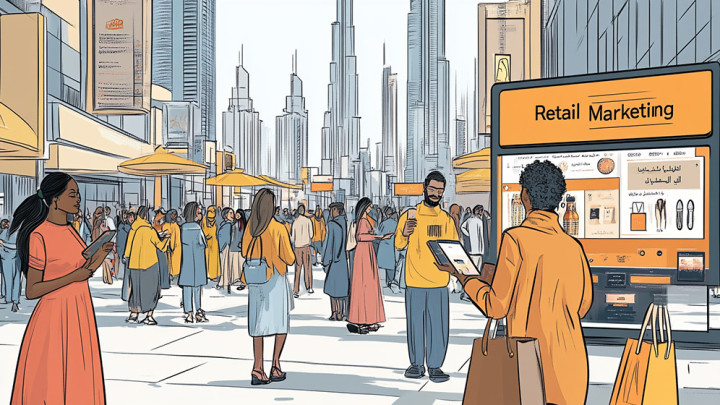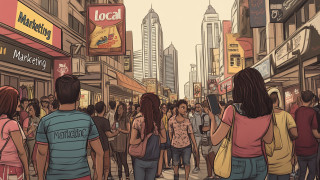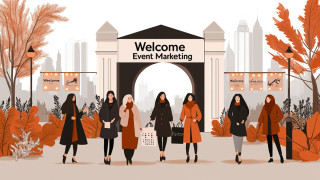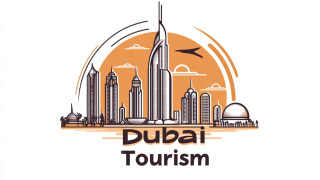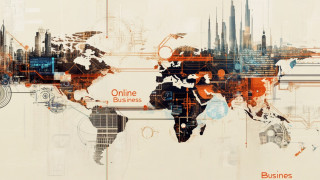Dubai has positioned itself as a global retail hub with everything from souks to futuristic malls and high-flying e-commerce platforms. Its innovative promise for those willing to meet local tastes and adopt digital advancements will offer myriad chances for businesses. Since last year, Dubai is boasting a high 30% growth in e-commerce every year, making it far ahead of most other global markets.
Uber makes UAE, and Dubai in particular, exciting territory for every retailer, keeping in mind the hybrid shopping model. Most profitable retailing businesses do not choose one from the two online or offline; instead, they prefer the combined combination,” and thereby, provide a seamless journey to the end-users. Thus, local shoppers hope for online convenience combined with experiential aspects of physical retail. Thus, this article illustrates some of the most actionable strategies for helping retailers capitalize on both excellence in the digital space and well-thought-out offline touchpoints to thrive in the competitive Dubai market.
Understanding Retail Consumer of Dubai
The Dubai Shopper Profile
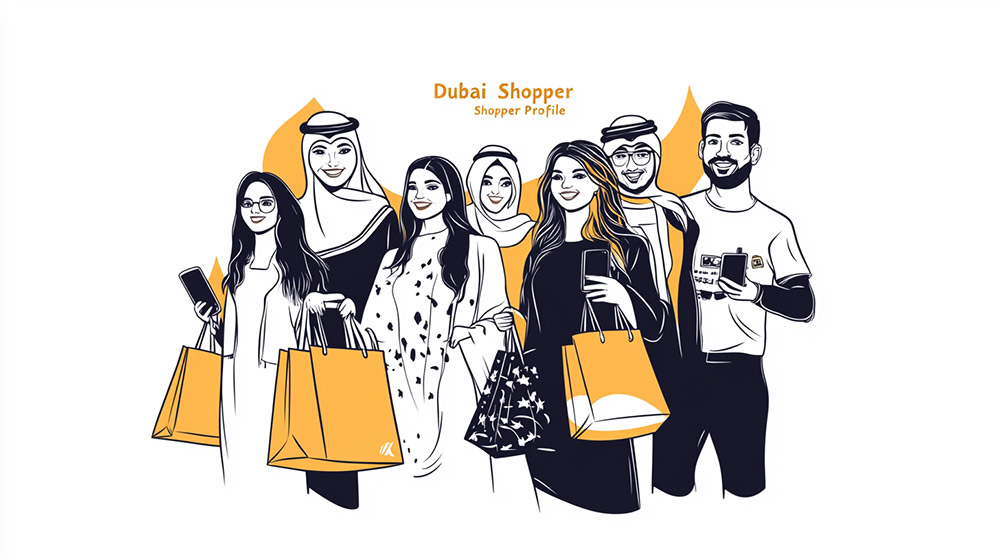
Learning the consumers is the first step if one is to conquer Dubai’s retail market. Dubai shoppers are supposed to have better disposable income than shoppers from many other markets, with a commensurate demand for high-end and luxury goods. Recent market studies reveal that Dubai residents spend about 30% more on discretionary purchases than the global average.
An average Dubai shopper is very tech savvy, with smartphone penetration well above 95%. Notably, this shopper is very likely to research online before making a purchase and is increasing the number of times that they complete transactions on a mobile device. However, in-person shopping is still appreciated, particularly where the item is expensive.
The above-mentioned consumer base is one of the most diverse anywhere, vis-a-vis the diversity of nationalities – over 200 nationalities live in the emirate. The multiculturalism phenomenon creates its unique challenges and opportunities for retailers. While many understand English, those consumers prefer content and customer service in their native language, especially Arabic, Hindi, Urdu, and Tagalog.
Shopping Behaviors Unique to Dubai
Some peculiar behaviors are exhibited by Dubai shoppers that an attentive retailer would note. High-income generally means concern free, though this isn’t true with Dubai. With promos, sales events, and loyalty programs, these consumers can be influenced towards buying something. That explains the great success of the Dubai Shopping Festival: the balance between luxurious aspirations against deal-seeking behavior.
Another trait is shopping in Dubai, which is very social and part of family visits to malls for shopping. Buying is usually not an individual activity. The same applies to online shopping: it is very common practice to share things before buying online with friends and family.
Brand loyalty is easily found in Dubai consumers; however, they will try any new brand if introduced properly by a trusted source. Word-of-mouth recommendations from friends, family, and social media influencers weigh heavily on their purchase decisions.
E-Commerce Platform Selection & Optimization
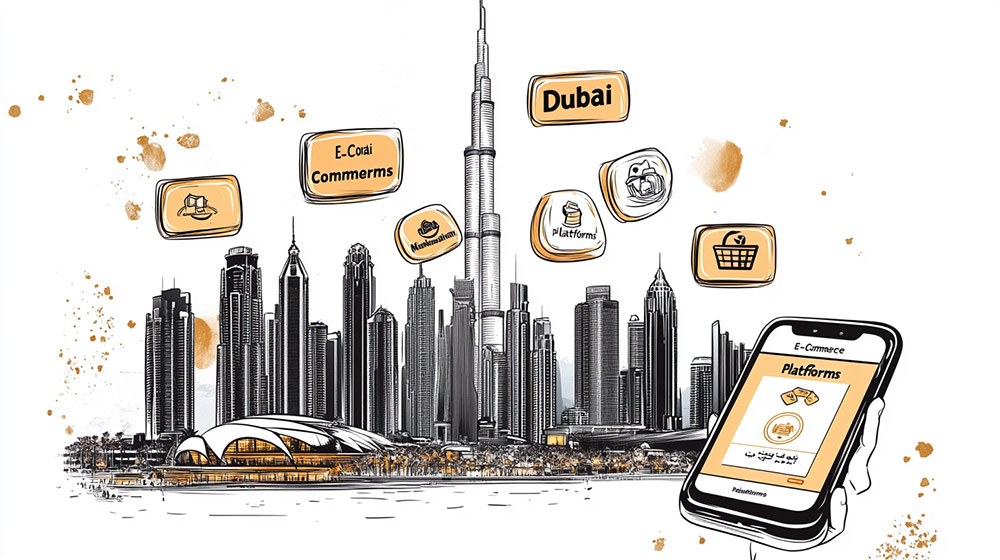
Dubai-Specific Marketplace Analysis
To sell on e-commerce platforms, build an online e-commerce store or, in some cases, undertake both when entering Dubai’s online retail space. Noon.com is an e-commerce firm founded by Emirati billionaire Mohamed Alabbar, which has captured the core of the region as a strong local player with a wealth of market insights. The platform has built easy onboarding for sellers, allowing them to integrate into NowNow’s rapid delivery services. Brands such as Aldo and Faces have greatly benefited from setting up custom storefronts on Noon. They offer their brand presence uniqueness while using the power of the platform.
Amazon.ae (formerly Souq.com) brings Amazon’s global infrastructure to the UAE market. It’s Amazon’s rich logistics and fulfilment capabilities that are critical benefits for retailers not already plugged into the distribution network in Dubai. Jumbo, local electronics retailer, expanded its reach by 45% in the first year since full integration into Amazon.ae’s fulfilment. Category-specific marketplaces have also found a strong place in Dubai. While Namshi is for fashion, Talabat and Deliveroo are fast evolving beyond food into quick-commerce. Typically, for a newcomer, such specialized platforms offer a better chance for visibility as compared to general marketplaces.
Provide a Localized Online Store
For retailers who seek more control over the customer experience, setting up a standalone e-commerce site is still the order of the day. However, achieving this success requires deep localization and goes far beyond the necessary translation.
Payment mechanisms are another extremely important consideration. Credit card ownership is high in Dubai, but many buyers do not prefer this way of payment. Enable support from local payment gateways, such as Telr and PayTabs, which handle different currencies and payment methods, including cash on delivery, which still stands for almost 28% of online transactions in Dubai.
Site performance matters heavily. Dubai shoppers would like to see websites fast loading, notwithstanding, at times, the regional bandwidth limits. After tweaking their website loading speed for the Dubai connections, especially at peak evening shopping times, fashion retailer The Giving Movement realized a 23% improvement in conversion. Bilingual feature is, or isn’t, optional. It’s the same requirement that your platform should easily toggle between English and Arabic, that is to say having the content in Arabic displayed properly right-to-left. An example would be Patchi Chocolates, which reported a 35% growth in conversion rates from Arabic-speaking customers after implementing a properly bilingual shopping experience instead of a half-translated site.
Dubai-Specific Digital Marketing Tactics
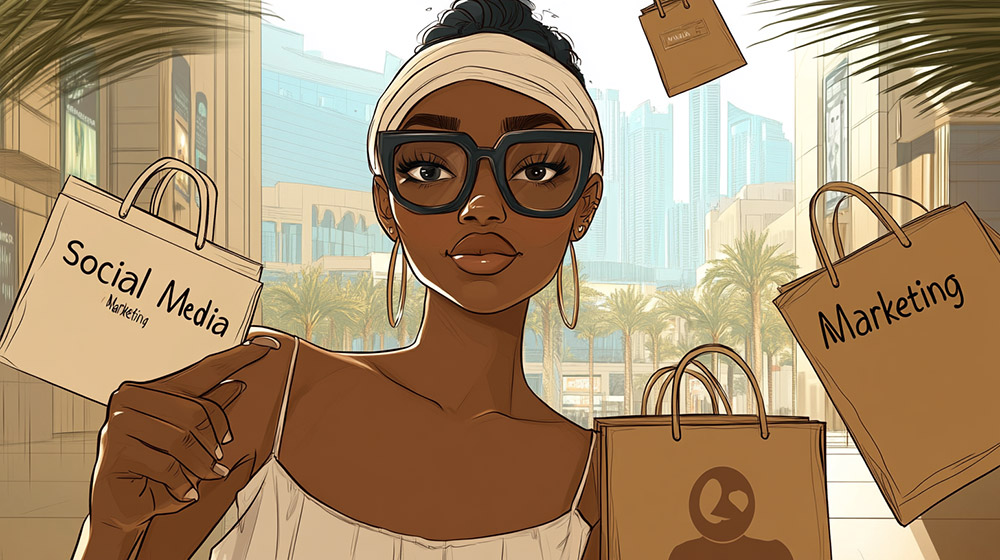
Targeted Social Media Strategies
Social media use in Dubai is above mean for the globe across practically every site. Instagram is the main platform for shopping discovery, with 78% of Dubaians having bought products found on Instagram.
Live Shopping Events
Live shopping has attracted serious attention from Dubai audiences over Instagram, Facebook, and, increasing with great promise, TikTok. The experience offers a mélange of entertainment, education, and shopping, whereby hosts show products off, answer inquiries, and offer special deals. In Dubai, live shopping events have enjoyed the greatest success when themed according to culturally relevant anchors such as Ramadan, Eid, and the Dubai Shopping Festival. Such events create urgency as well as community engagement, which drive immediate sales.
Localized Influencer Partnerships
The influencer system in Dubai is uniquely concentrated and influential. Collaborating with influencers in Dubai who understand local cultural nuances while targeting specific community segments could generate much more engagement and sales.
Effective influencer collaborations in Dubai go beyond sponsored posts to include product co-creation, exclusive discount codes, and appearances at both online and offline brand events. The most successful ones are based on long-term partnerships, not one-off promotions.
Level Shoes is a luxury footwear store with an impressive strategy on Instagram for Dubai. They keep a stunning feed, showcasing products within Dubai scenarios, from desert photoshoots to city skyline backdrops. Their integration with Instagram Shop, which allows for seamless purchases within the app, saw a whopping 40% jump in conversion from social media traffic.

Exclusive WhatsApp Groups:
Via flash sales and VIP customer offers, exclusive WhatsApp groups generate an air of community and exclusivity, which is important for Dubai consumers, who are often status conscious. Such groups will combine personalized service with time-bound offers to generate immediate sales.
Retailers may create a segmentation for these groups based on purchase history, preferences, or customer value, thereby delivering very targeted offers. Way more engagement is drawn in by the direct, personalized nature of WhatsApp communication, when compared to traditional email marketing.
WhatsApp Business
WhatsApp Business has evolved into one of the major sales channels in Dubai, where the application is almost universally accepted among consumers. Retailers like grocery store Spinneys have built WhatsApp shopping assistants whereby consumers could place orders, check product availability, and schedule delivery slots. This personalized approach matched Dubai customers’ expectations toward convenience and service.
The opening of TikTok Shop in the UAE provided new avenues for product discovery. The children retailer Mumzworld used TikTok to launch new products with creative unboxing videos featuring local families. The campaign had 4.8 million views and generated a 68% increase in sales.
Search Engine Marketing (SEM) for Dubai
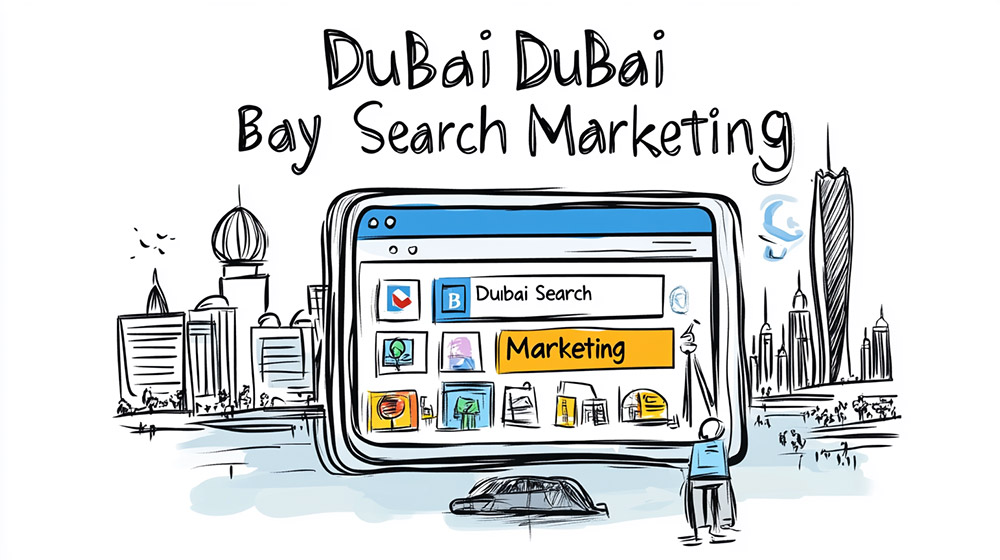
Distinctive approach requires specialized methods according to search behaviors in Dubai. Dubai specific SEO: include location terms that locals use, such as area names Business Bay, JBR, Marina, instead of just “Dubai”. Organic traffic was improved by 52% for Marina Home through optimising content with locality specific search name.
Google Shopping campaigns run exceptionally well in Dubai while actually taking into account local shopping behavior. Competitive monitoring of prices is introduced, since Dubai shoppers are highly price-conscious and compare the prices across a number of retailers. Dynamic pricing refers to keeping Google Shopping feeds for the electronics retailer updated automatically as per comparison with competition from within the local retailers by Sharaf DG.
Bear in mind that Dubai voice search often happens in the mixed languages. It should, therefore, be optimized for English and Arabic voice queries and should cover the dialectical variations of Gulf Arabic rather than the standard Arabic. Beauty retailer Faces saw a 31% increase in mobile traffic after optimizing for common beauty-related voice searches in Khaleeji Arabic dialect.
Email Marketing Tailored to UAE Cultural Calendar
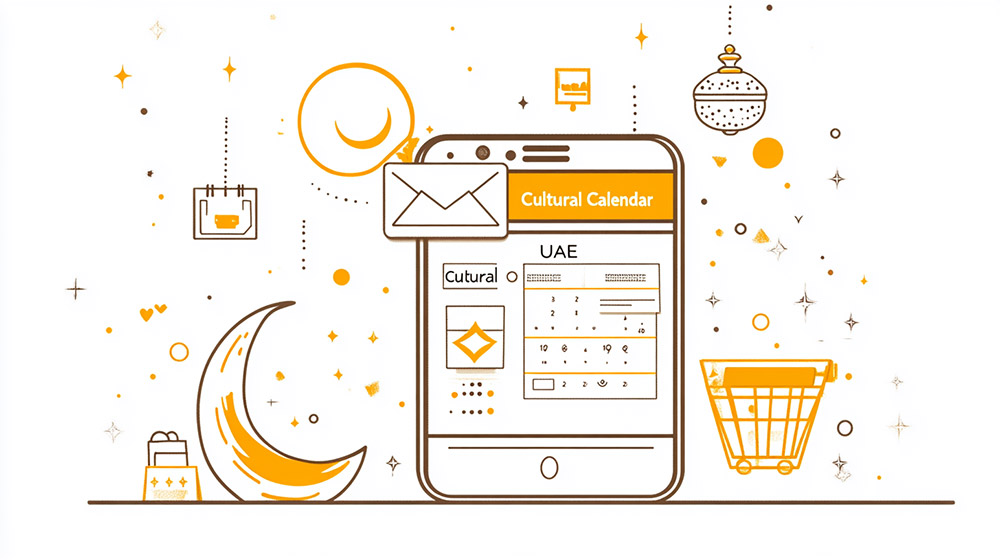
Emails have to be timed just right for everything to work in Dubai. Unlike Western markets, daily rhythms show strong evening traffic between 8 and 11 pm when lots of residents are likely to be online after family time.
Emailing should be based on the cultural and retail calendar of the UAE. Consumers tend to shop very differently during Ramadan, often well into the early hours of the morning or very late at night. Carrefour sends offers about Ramadan at 10 in the evening and 4 in the morning, with an open rate 2.5 times higher than sending them typically during the day.
Important festivities such as the Dubai Shopping Festival (DSF) and Dubai Summer Surprises (DSS) should have separate email campaigns. Splash, a clothing retailer, prepared countdown emails that revealed deals at every hour for these festivals and produced conversion rates 3 times the usual from emails.
Content Marketing that Localizes
Creating Dubai-Centric Content
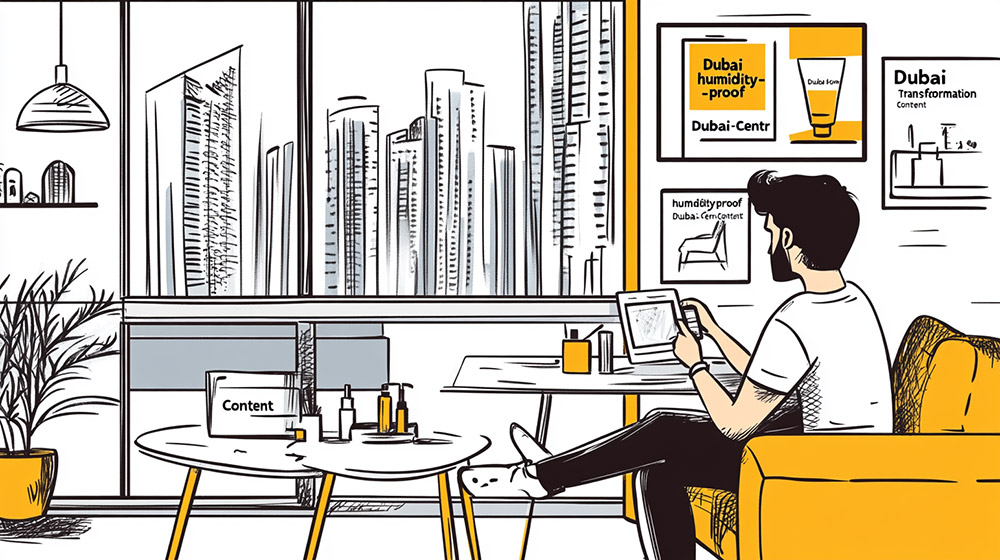
Dubai-centric content goes over and beyond shopping tips for the locals; it covers local home lifestyle aspirations and applies practical needs. Home furnishing retailer THE One had a content series called “Dubai Home Transformations,” which presented products and how it solves specific problems in Dubai apartments-from small-space solutions to an indoor-outdoor living area constructed on balconies.
Create great content for local unique challenges. Huda Beauty is already known for producing great topical guides like “Makeup That Survives Dubai Summer” and “Humidity-Proof Hair Styles” regarding problems Dubai residents experience, proving chic value of locally relevant, practical content to achieve up 4 times greater than normal beauty content performances on engagement metrics.
Influencer Collaborations with Dubai-Based Personalities
Dubai’s influencer space is different from those of Western markets. While mega-influencers do have their space, micro-influencers in the range of 5,000-50,000 followers give much superior engagement and conversion rates, especially when they cater to specific niches of the community.
Fashion retailer Splash managed to roll out a great micro-influencer strategy by teaming up with 25 Dubai-based and coming from several different nationality backgrounds content creators. Each influencer created content in an authentic manner of portraying how they style Splash clothing for different occasions in Dubai-from brunch to desert safari-even delivered a 28% higher engagement rate over their previous celebrity-focused campaigns.
When selecting influencers, consider Dubai’s multicultural population. Partner with different communities – Emirati influencers, Arab expat influencers, Western expat influencers, South Asian influencers, and Filipino influencers reach entirely different audience segments whose purchasing behavior is completely different.
User-Generated Content Campaigns
Dubai gives very picturesque backgrounds that are naturally conducive to UGC. Sportswear brand Under Armour launched a “Train Across Dubai” campaign that aimed at getting the consumers to post their workout pictures around Dubai-from Kite Beach to Dubai Marina. That resulted to thousands of genuine posts and boosted engagement among fitness-minded Dubaians.
Create guidelines for user-generated content that will encourage much participation by customers in your campaign for UGC. Furniture retailer West Elm has a simple Instagram template and hashtag that customers can use for DIY Dubai home stylings to win gift cards for the most creative submissions.
Mobile Commerce: Optimizing for App & Mobile-First Sales
When the high smartphone penetration of Dubai is put into account, over 70% of e-commerce transactions being processed through a mobile can only mean that Dubai retailers must build a mobile-optimized shopping experience for their businesses to succeed.
One-Click App for Shopping
A well-thought-out shopping app can make or break the customer experience, allowing for individual product recommendations and fast checkout. A shopping experience that remembers user preferences and has options like Arabic language choice and socioculturally relevant payment methods means a lot to consumers in Dubai.
With successful usage, retail apps will have an augmented reality try-on feature for fashion and beauty, check store stock for omnichannel shopping, and loyalty program integration.
Push Notification for Flash Sales
When effectively priced, push notifications can be key directors of immediate action for mobile users on their apps. In such a competitive retail environment in Dubai, time-sensitive offers via notifications tend to convert highly.
Effective notifications are personalized according to browsing history, past purchases, and declared interests. Timing also matters, and many retailers in Dubai are achieving great results by sending notifications in the evening, when their customers typically have time to engage.
Mobile Wallet Payment
Seamless payment methods such as Apple Pay, Samsung Pay, and buy-now-pay-later, e.g., Tabby and PostPay, are fast becoming consumer preferences in Dubai. Integrating such options diminishes friction during checkout and lessens security concerns some shoppers might have about entering their card details.
Interestingly, young consumers and expatriates embrace mobile payments; however, their use is growing across the board as these services are really becoming commonplace in the market.
Offering BNPL (Buy Now, Pay Later) to Increase Conversions
The buy-now-pay-later concept is aptly suited to Dubai, which has seen a fast emergence of these services catering to cultural preferences for installment payments and practical considerations for financing flexibility.
Integration for BNPL Services
Tabby, PostPay, and Spotii are emerging payment options for retailers selling online in Dubai at breakneck speed. These platforms split payments into interest-free installments, decreasing checkout abandonment rates considerably.
Integrating is fairly simple since they might provide plugins or APIs, and many take care of the credit approval and payment collections, leaving little risk on the retailers’ side. The most successful implementations promote BNPL options all along the shopping journey and do not just limit themselves to the checkout.
Marketing BNPL Options
Informing consumers about 0% installment payment offers is seen to be one of the most potent conversion boosters, especially for some of the more expensive product lines. The Dubai consumer is responsive to the message that states financial flexibility does not mean sacrificing instant gratification.
One of the tactics from successful retailers is enabling a calculator to appear directly on the product page itself, allowing consumers to see at a glance how the total amount of their purchase can be divided into installment payments.
Integrating Offline-Online Strategies
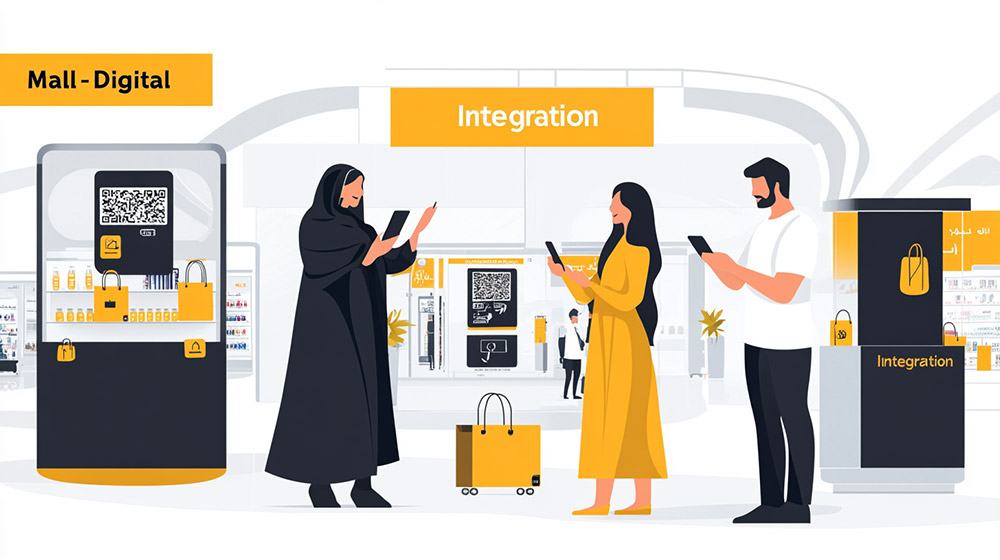
Mall Digital Activations
Despite growth in e-commerce, malls in Dubai are still valuable to the retail touch, and savvy brands exploit such an integral space to unlock digital engagement instead of separating physical presence and online channels.
Carrefour built smart shopping experiences at the Mall of the Emirates where customers can scan QR codes next to products while using the app for instant purchases, missing checkout lines. Products are prepared for collection or delivery. Such approach has made it more convenient and has increased app downloads by 42% over a period of three months.
Beauty retailer Sephora has installed digital mirrors in their Dubai Mall outlet that enable customers to virtually try products on, save their preferred looks in their online accounts, and reorder items later from home. Such typing of technology would also bridge that of ‘try-in-store buy online’ that most famous Dubai shoppers prefer.
Experiential Popup Experiences in High Traffic Spots
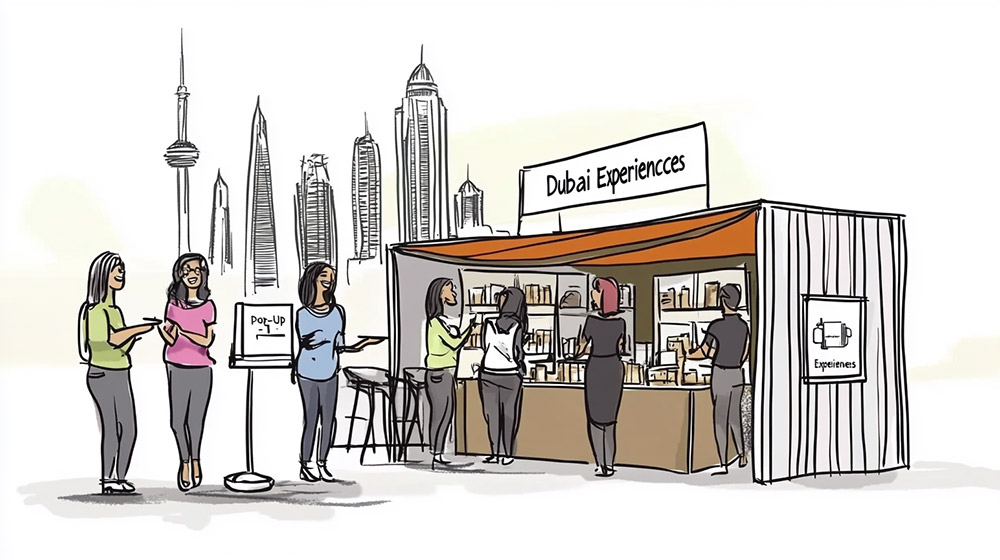
Strategic pop-up stores in high-profile locations like JBR Walk, City Walk, and La Mer create opportunities for experiential marketing to reach Dubai shoppers and develop digital connections.
Eyewear brand Warby Parker made a big splash in Dubai by launching a three-month pop-up at City Walk. Frames were tried in real life but purchases made via iPads, with deliveries to homes. This model of showroom avoids inventory constraints and builds their database of UAE customers.
Even online-only brands can enjoy physical presence during such important shopping periods as DSF. Online fashion retailer Nisnass set up a “Digital Boutique” pop-up where buyers browse through digital catalogs on giant touchscreens and schedule same-day delivery right to their homes or hotels. It helped repositioning as a tech-forward retailer through that experience while providing human interaction through brand ambassadors.
Implementing Click-and-Collect
Dubai’s well-known snarls and an inclination towards instant gratification make this service ideal for residents. Electronics retailer Jacky’s boasts a very successful click-and-collect initiative in all their stores across Dubai whereby order made via the internet count towards owning products two hours after. Currently, this process accounts for about 35 percent of their online sales.
For those retailers who are not heavily set up with huge physical infrastructures, collaborative partnerships with merchants can enable click-and-collect facilities for them. For example, Kibsons, an online grocery concept, has partnered with filling stations around Dubai so that those stations are added as collection points across town, thereby greatly increasing catchment area without much investment on infrastructure.
Localized Customer Experience Optimization
Multilingual Customer Support System
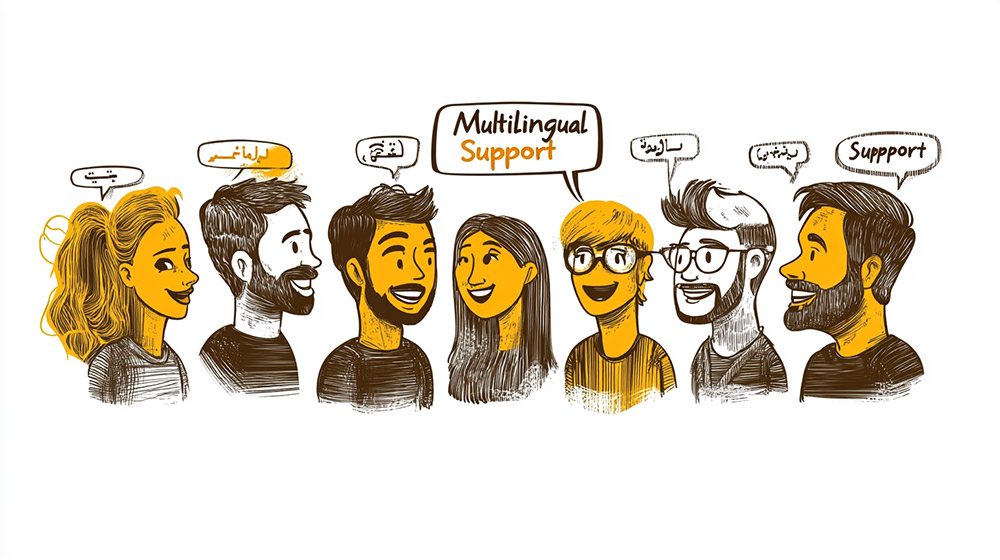
Dubai needs a multilingual customer support system because of its diverse population. Apart from Arabic and English, consider including Hindi, Urdu, Tagalog, and other relevant languages depending on your targeted audience.
For example, a home appliance retailer, Better Life, has introduced a language preference functionality in their online chat platform, linking customers to service agents that speak their preferred language. The effect has been a reduction of 40% in support resolution and an increase in customer satisfaction scores.
For instance, rather than opting only for translation services, hire customer service staff from diverse communities in Dubai who understand cultural nuances. Wojooh, for instance, employs Arabic, English, Hindi, and Tagalog-speaking beauty advisors that give online consultations to form real connections with the customers from different backgrounds.
Dubai-Specific Delivery Expectations
Heightened delivery speed is among the many expectations from Dubai customers. Quite a number have come to realize that same delivery has become standard within the city. New bench lines for what retailers should match have been set by Noon Daily and Amazon’s Prime Now.
Have delivery windows defined by neighborhoods for proper logistics management. Namshi is an online fashion retailer that offers defined two-hour delivery slots that apply to a number of Dubai areas which help in optimizing the routes for deliveries while giving predictable services to their customers. Their system follows up with live tracking updates through WhatsApp creating real-time following for the customers.
For the new retailers entering the market for them to provide cost-effective last-mile delivery in Dubai it could be via partnerships with services such as Fetchr or Careem Now, thus providing the retailer without an in-house fleet coverage across Dubai. This works by integrating APIs into e-commerce platforms to ensure a seamless experience for the customer.
Payment Options for Dubai Consumers
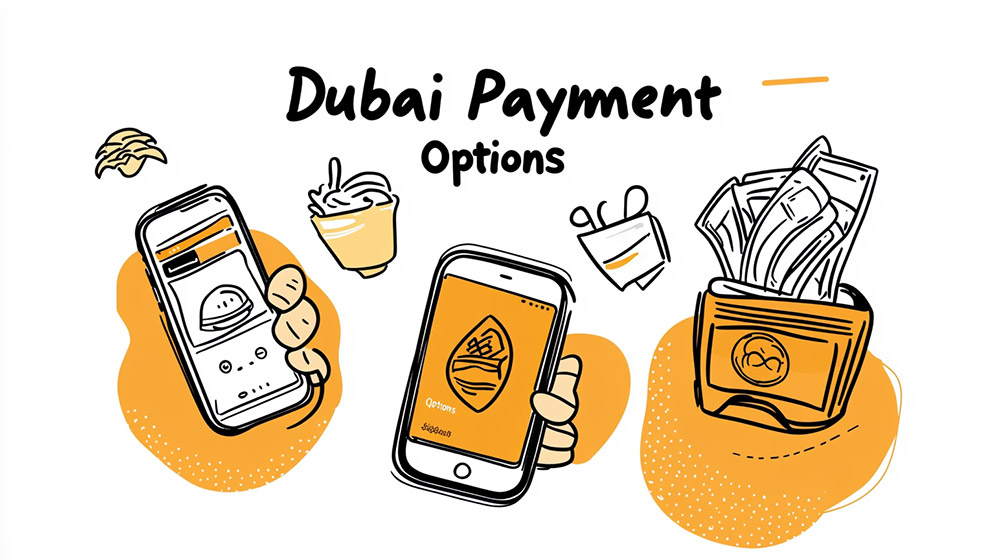
Dubai is the host of western-style payment modes and options, where there is nothing but cash, offsetting the traditional methods of payment coined some years back. Mobile wallets such as Apple Pay, Samsung Pay, and the local option Careem Pay have all come into play recently with a steep rise in usage among youths.
However, cash on delivery remains the most significant among the methods for new customer acquisition. According to research conducted by electronics retailers Sharaf DG, around 45% of new customers prefer cash on delivery to make their first purchase but, in most cases, tend to switch to digital payment methods for subsequent purchases after trust has developed.
Installments of payment have also been gaining increasing popularity in terms of luxury items. Modes of “buy now, pay later” without credit cards from the likes of tabby and Spotii cater to the gap of young or new residents to Dubai without solid credit histories.
Data-Driven Marketing Approaches
Dubai Consumer Data
The retail market in Dubai yields a wealth of customer data that can drive personalization avenues. Department store Robinsons has recently adopted AI-enabled recommendation engines that cater to Dubai’s seasonal shopping dates, making the suggestions during summer months (indoor activities, travel goods) versus winter (outdoor dining, desert excursions) different.
It helps to segment your customer database by nationality groups to find clearly different shopping habits. For example, supermarket Spinneys was able to learn about big differentials in the types of products preferred by and the frequency of shopping for Western expatriates, Arab families, and South Asian customers, thus creating customized promotions for each segment of community.
Geotargeting for Dubai Neighborhoods
Differentiation of Dubai neighborhoods does possess varied classifications when it comes to the customers. Thus smart retailers capitalize on this to really geotarget. Downtown Dubai residents live a life of luxury positioning, the like of which is Silicon oasis, really comprised of much younger tech professionals who tend more towards value.
Greens Giant Jumbo Electronics uses geofencing to drive targeted mobile offers as customers come into predefined areas in Dubai. These stores across malls will send varying promotions to customers entering one of the high-end malls like Dubai Mall against those walking into Deira City Centre, which is more value-oriented.
Hyperlocal Delivery Offer: High Density Neighborhoods. Kibsons offers free delivery for high-density clusters of apartments in Marina and JLT on selected weekdays while promoting efficiency in delivery van use and enticing high volumes of orders from these areas.
Gamification & Loyalty Programs for Repeat Sales
Customer retention among most retailers in Dubai is cheaper than winning new customers into the fold. Gamification and loyalty schemes will usually have fun, engaging experiences to keep people returning to the shop and to the brand.
Creating a Point-Based Loyalty System
Point-based reward systems sit right within the psyche of Dubai consumers, who appreciate status and recognition. An effective loyalty program would mean solid tiers with tangible benefits between them, special recognition for VIP customers, and a synergy between online and offline purchases.
For many successful retailers in Dubai, cultural things are examples of reward programs in this place, such as higher rewards for such acts during Ramadan or special birthday treats in regard to both calendars, Gregorian and Hijri.
Gamified Promotions
Think of an interactive Promotion: digital scratch cards, spin the wheel, treasure hunts. Such publicity makes excitement and allows one to gather important information about the consumers. A consumer from Dubai will be a sucker for these types of promotions, because they’re promising yet not so certain for the reward.
Such promotions would matter if they would truly reflect the fun, ambitious spirit of Dubai and award something that really felt of value rather than just token gestures.
Regulatory Compliance & Trust Building
E-commerce Laws in the UAE
Dubai’s regulations in e-commerce are still subject to change and have increasingly tilted towards the protection of consumers. Make sure your policies fall in line with the laws of the UAE regarding consumer protection, especially on refunds, exchanges, and other disclosures of product information.
Bear in mind that clear specification should be made on the source of shipment as import duties might apply to international items. The Modist specifies whether different products are shipped from its Dubai warehouse facility or from other locations, thus providing clear expectations in delivery and ensuring a consumer knows when such charges will apply or when such charges do not apply.
Building Trust with Dubai Consumers
Trust signals that are particularly important to Dubai consumers include:
Authentic customer reviews – Involve TrustPilot and others to build up credible customer reviews in platforms. Dubai shoppers would not mind a little less than perfect reviews; for them, real reviews seem more valuable than five-star ratings when it addresses both sides of the positive and negative.
Safe payment badges – Keep banners of payment security certifying organizations, mostly known in the region with UAE TRUSTe and PCI DSS compliance badges.
Ethical business practices – More and more Dubai consumers want to support brands whose ethics are well-determined. The most talked-about case is that of the cosmetics retailer Lush, which features on its Dubai website cruelty-free testing, as well as ethical sourcing, among other topics, to cater to this growing market of conscious consumers.
Measurement & Optimization
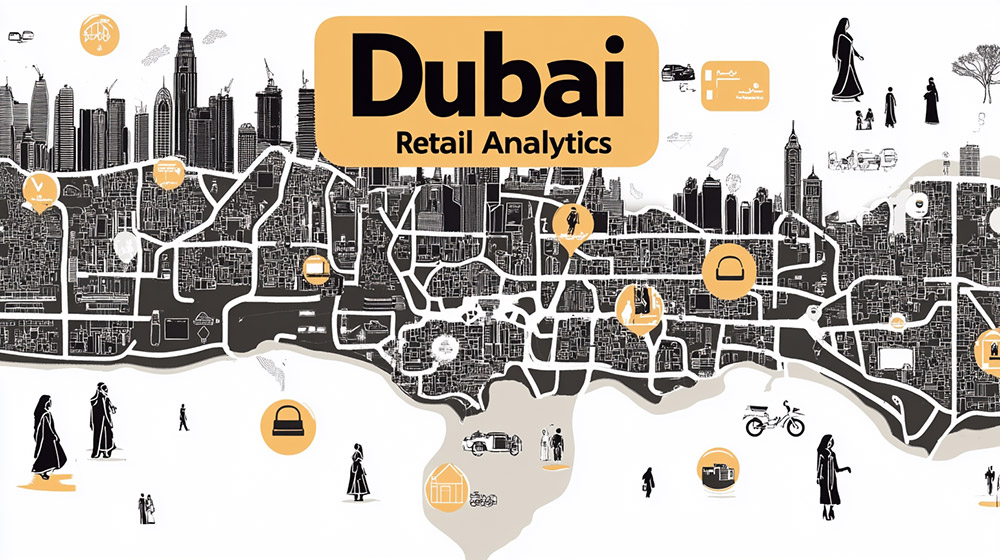
Dubai-Relevant KPIs
While you can keep on executing those generic e-commerce metrics- for these are key to your business- you could consider adding Dubai-centric KPIs for gauging performance more accurately:
Multichannel attribution – Measure the digital versus offline experience in tracking mall visits and use it in value attribution.
Track the increasing share of traffic and conversions that come from Arabic and English voice searches as this channel grows in importance.
Delivery satisfaction- Not just control delivery speed but also satisfaction with human interaction regarding delivery because this would represent much of repeat purchase behavior in Dubai’s culture focused on service.
Sustained Improvement Model
Set up systematic testing arrangements in Dubai’s various audiences thereby making testing systematic to them. Eyewa does parallel A/B testing with different user segments. It does so by accepting that design preference and user experiences vary considerably by nationality.
The plan entails creating customer feedback loop systems that consider differences in cultural perception with respect to feedback. Numerous Dubai residents from a certain culture will avoid directly criticizing feedback forms but share it through different channels. Multiple feedback collection mechanisms will be implemented: public reviews, private surveys, and direct outreach through relationship managers for high-value customers.
Case Studies of Successful Dubai Retail Marketing
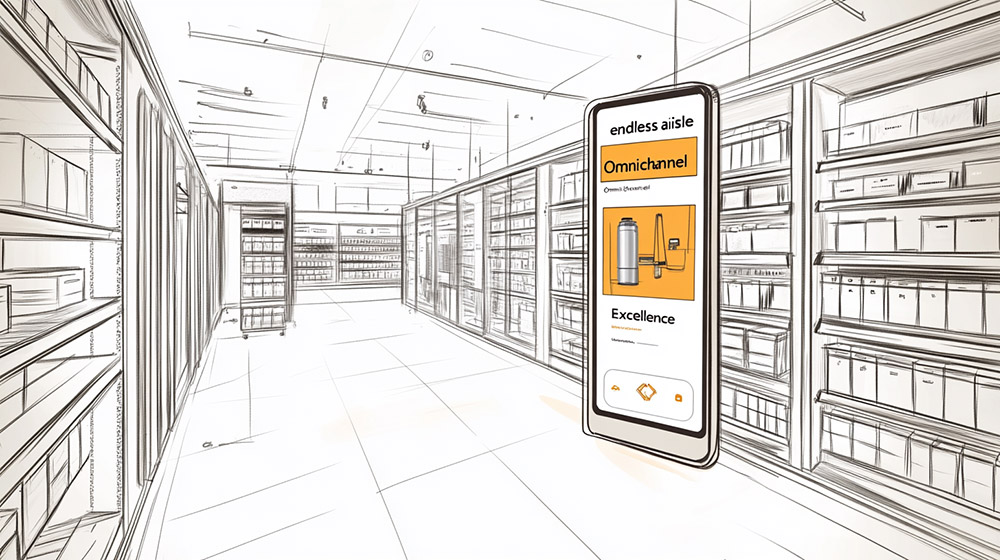
Jumbo Electronics: Omnichannel Excellence
The most innovative change taking Jumbo Electronics from being a traditional electronics retailer to an omnichannel giant was the ‘endless aisle’ technology in their stores, where customers can even browse the entire catalog via interactive screens in case something is out of stock.
The mobile app features an augmented reality visualization of what appliances would look like in customers’ homes before they make a purchase. This technology has led to beneficial sales during the pandemic when foot traffic visiting stores has decreased.
The changes include a revamped loyalty program that works across channels with points earned and redeemed both online and in-store. They discovered through their data analysis that omnichannel customers spend 3.4 times more than single-channel shoppers, justifying the large investment in creating seamless experiences.
Landmark Group: Personalization at Scale
Retail conglomerate Landmark Group’s implementation of personalization successfully translated into all brands under its fold including Home Centre and Babyshop, Centrepoint, and Babyshop. Their customer database integration enables a shared and single customer view across brands, enabling targeted cross-selling while still maintaining privacy preferences.
Their Shukran loyalty program allows for unified customer data to be held for online and offline touch points enabling personalized offers based on purchase history and browsing behavior. AI-based personalization resulted in an email campaign conversion rate increase of 42 percent and returning customers generated a 28 percent increase in average order value.
Furthermore, Landmark is also a model for social commerce integration. Direct selling through WhatsApp-their 22% contribution to the overall online sales figure recorded in Ramadan 2023-will have watched personal shoppers taking customers through an enticing selection of products using video calls along with beautifully selected recommendations.
Conclusion Any other retail, digital, and physical presence must be carefully instituted. And it is those who learn and work to understand the very unique and peculiar make-up of Dubai: a multicultural society with increased digitization, indulgence in upscale things, one-of-a-kind shopping patterns defined mostly by ambient conditions of weather and culture, among others, who would most clearly formulate the best strategies.
Understanding Dubai’s various consumer segments is how one starts and not regarding the market as a homogeneous entity. Build digital infrastructures that encompass all local preferences-from payment methods to languages. Produce content and experiences that capture the lifestyle aspirations of Dubai while addressing more pragmatic local challenges.
Most importantly, keep adapting your activities according to performance data and consumer feedback. Dubai’s retail environment evolves quickly with new entrants, developing technologies, and changing consumer behavior. The long-term winners in this market will be those that prepare strategically while remaining nimble to quickly shift approaches.
Conclusion
To succeed in Dubai’s retail industry, businesses must strike a balance between digital prowess and physical presence. The best approach will begin with the unique characteristics of Dubai: its multicultural population, high digital adoption, penchant for luxury experiences, and shopping patterns dictated by climate and culture.
It is best to start with a segmentation of consumers in Dubai rather than just treating the market as a whole. Start to build a digital framework for payments or languages that fit the local characteristics. Develop content and experiences that appeal to the aspirations of the Dubai lifestyle but therefore address some of the local practicalities.
Most importantly, do not ignore performance insights and customer feedback and use them continuously to adapt how you engage in the Dubai market. Retail trends change quickly in Dubai with the arrival of new competition, technologies, and customer behaviors. Long-term retail success will favor those who marry long-term strategy with the ability to adjust immediately.
Retailers who adopt this strategy will strategically win in one of the most competitive and lucrative retail markets in the world.

